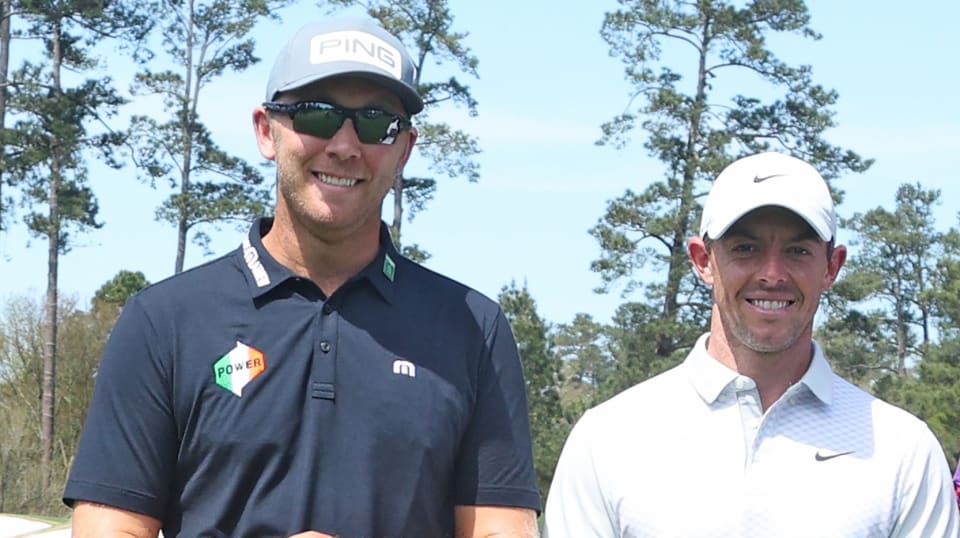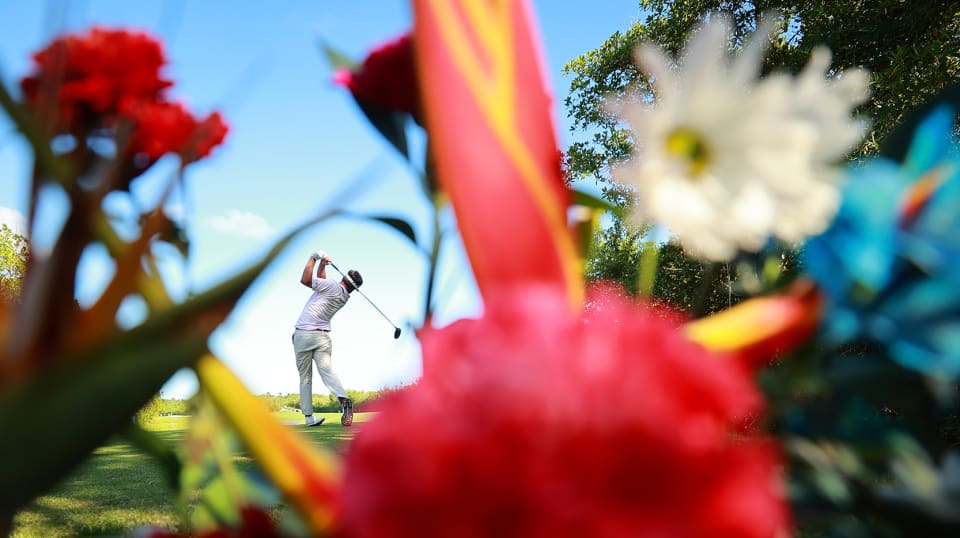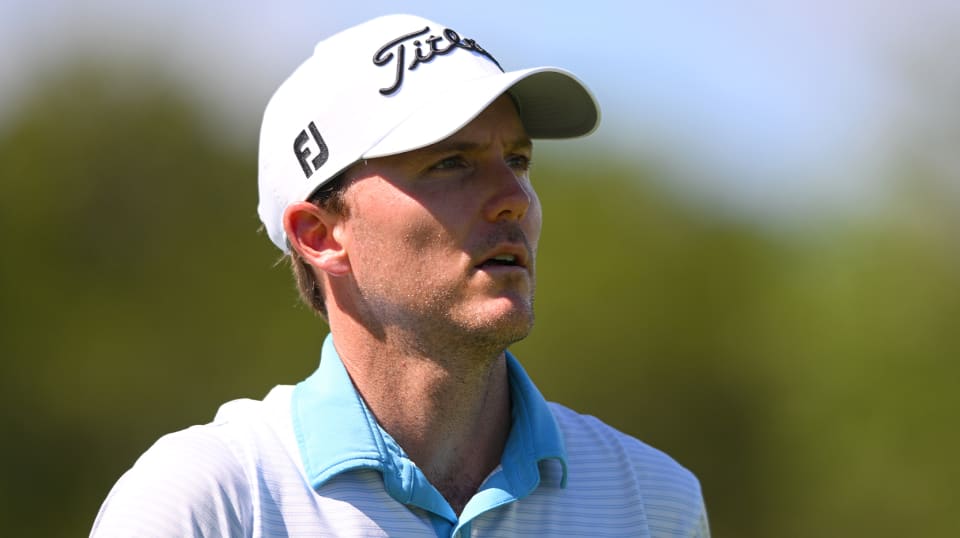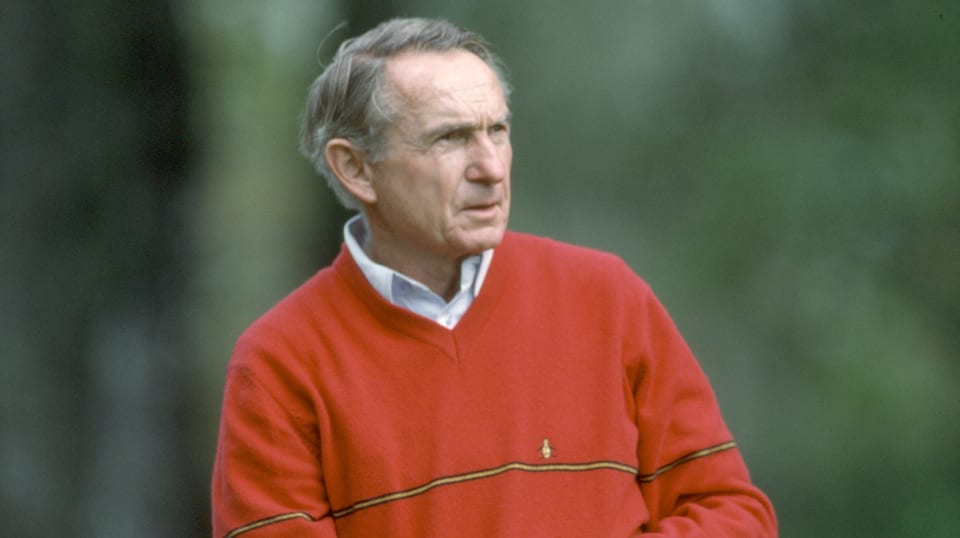
The last two winners on the PGA TOUR – Rory McIlroy and Seamus Power – have both represented Ireland in the Olympics.
They have ties to another team, as well. The East Tennessee State men’s golf team.
The small school in Johnson City, Tennessee, competes in the Southern Conference and in the Football Championship Subdivision (more commonly referred to as Division I-AA). Golf may be the school’s strongest sport, thanks in part to a pipeline from Great Britain and Ireland that included Power and (almost) McIlroy.
The Buccaneers, led by Irishman Keith Nolan, finished third in the 1996 NCAA Championship – ahead of a Tiger Woods-led Stanford team – and twice played in the NCAA Championship during Power’s tenure.
Power, who won his second PGA TOUR title Sunday at the Butterfield Bermuda Championship, almost was preceded on campus by McIlroy, who won THE CJ CUP in South Carolina on Oct. 23 to ascend to No. 1 in the world.
McIlroy signed a letter of intent to play golf for the Buccaneers beginning with the 2005-06 season. “The youthful McIlroy brings an extensive and successful resume to Johnson City,” reads the news release from November 2004, which is still available online. McIlroy opted to stay in Ireland and play amateur golf instead of attending college, but ETSU’s coach at the time, Fred Warren, kept the signed letter of intent and had it framed.
“I signed a letter of intent to play for ETSU, did my SAT, did everything like that so I (was) fully ready to come over and play college golf,” McIlroy said in 2015. “But at that point I knew that I really wanted to turn pro earlier than the four years. … I had no intention of graduating at all, so I thought it was just better to play that full time amateur golf in Ireland.
“By the time I was probably just getting out of college I had just won my first major, so sort of it was a good decision in the end.”
The Ireland-to-ETSU connection actually was started by John Paul Fitzgerald, who played for the Buccaneers and became McIlroy’s caddie for several years. Next was Nolan, who finished T9 in that 1996 NCAA Championship and represented Great Britain & Ireland in the following year’s Walker Cup. When McIlroy decided not to attend ETSU, Warren was on the lookout for players to fill his spot.
The longtime ETSU coach watched Power play at the 2005 European Boys’ Team Championship at Monticello Golf Club in Italy.
“He had an American-style game,” Warren told The New York Times. “A long hitter, aggressive, trying to make birdies. I was real impressed with him.”
Power had struggled to draw interest from other U.S. schools and if it had not been for the scholarship offer from East Tennessee State, he was considering taking an accounting course at a university in Ireland, according to the Times. Power still had doubts about attending ETSU even as he was on his flight bound for the States.
“Where am I going?” Power told the Times. “I didn’t have a telephone. I didn’t have many dollars. If I land over here, and if something as simple as my coach isn’t at the airport to pick me up, I have no idea what I’m going to do.”
According to a 2016 profile on PGATOUR.COM, McIlroy’s decision not to attend ETSU freed up money that was used for Power’s scholarship. McIlroy played amateur golf until turning pro after the 2007 Walker Cup.
Power started at ETSU in the fall of 2006 (when McIlroy would have been a sophomore on the team) and graduated with an accounting degree in 2011. He was a two-time conference champion, as well. He spent several years on the mini-tours before playing his first full Korn Ferry Tour season in 2015. He was a PGA TOUR rookie for the 2017 season, but failed to make the FedExCup Playoffs in three of his first four seasons.
He’s been on a rapid ascent in the last 18 months, however. He started 2021 ranked 429th in the world but has now risen to a career-best 32nd in the OWGR. He collected his first PGA TOUR win at the Barbasol Championship in July 2021. He also is fifth in this season’s FedExCup.


